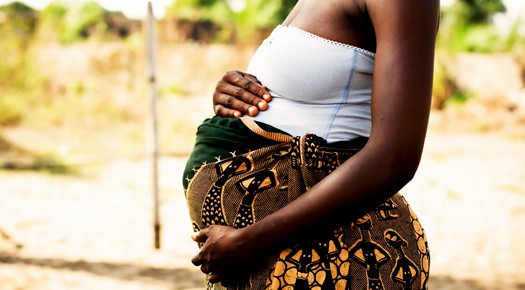
The loss of health workers due to the Ebola epidemic in West Africa may result in an additional 4,022 deaths of women each year across Guinea, Liberia and Sierra Leone as a result of complications in pregnancy and childbirth, a new World Bank report shows.
According to the report, published in The Lancet Global Health, the recent outbreak of Ebola in West Africa could leave a legacy far beyond the deaths and disability caused directly by the disease itself.
“The loss of health workers to Ebola could increase maternal deaths up to rates last seen in these countries 15-20 years ago,” Markus Goldstein, Lead Economist at the World Bank Group and a co-author of the report who heads the World Bank’s Africa Gender Innovation Lab, said in a statement.
The paper, “Healthcare Worker Mortality and the Legacy of the Ebola Epidemic,” estimates how the loss of health workers to Ebola will likely affect non-Ebola mortality even after the countries are declared Ebola-free. Maternal mortality could increase by 38% in Guinea, 74% in Sierra Leone, and 111% in Liberia, the report says.
Since the Ebola epidemic hit Guinea, Liberia and Sierra Leone, health workers have died at a higher rate than any other population group, exacerbating skill shortages in countries that had very few trained health personnel to begin with. Even after the countries reach zero Ebola cases, the loss of so many skilled healthcare workers will adversely affect the health of their populations for years to come, the authors warn.
As of May 2015, 0.11% of Liberia’s entire general population had died due to Ebola, as compared with 8.07% of its health workers, defined in the study as doctors, nurses and midwives. In Sierra Leone, the loss was 0.06% of the general population compared with 6.85% of the health workers, while 0.02% of Guinea’s overall population had died compared with 1.45% of all health workers.
According to the report, this translates into a 10% reduction in doctors in Liberia (which only had about 50 doctors in the entire country to start with) and an 8% reduction in nurses and midwives. In Sierra Leone, it means a 5% reduction in doctors and a 7% reduction in nurses and midwives. In Guinea, the reduction is smaller, 2% for doctors and 1% for nurses. At the outset of the epidemic, the World Health Organization ranked Liberia, Sierra Leone, and Guinea as 2nd, 5th and 28th from the bottom, respectively, among 193 countries in terms of doctors per 1,000 people.
“Ebola has weakened already very fragile health systems in these countries,” said David Evans, Senior Economist at the World Bank Group and co-author of the report. “Ebola’s devastating impact should be the catalyst to strengthen the health systems far beyond their pre-Ebola levels.”
The report suggests that to save these lives, 240 doctors, nurses and midwives would need to be hired immediately across the three countries. This is a small fraction of the 43,565 doctors, nurses and midwives that would need to be deployed in Guinea, Liberia and Sierra Leone to achieve sufficient access to essential health services as implied by the United Nations Millennium Development Goals.
“These countries require urgent investment in health systems starting with a substantial increase in the number of trained health workers,” said Dr. Tim Evans, Senior Director of Health, Nutrition and Population at the World Bank Group. “This is to ensure that Guinea, Liberia and Sierra Leone are not only equipped to deal with future deadly epidemics but that every day, mothers have access to the quality health care they need that will save their lives and prepare them for a more promising future.”
